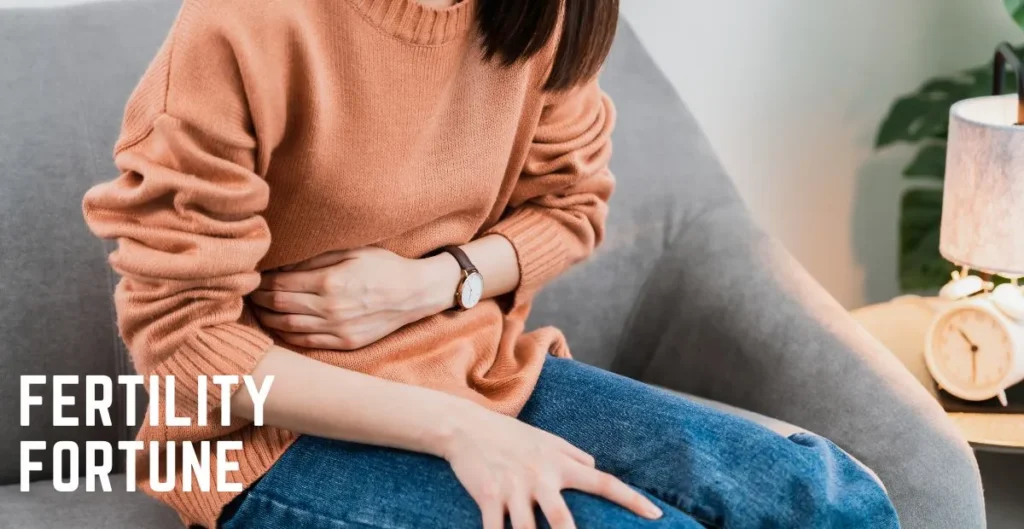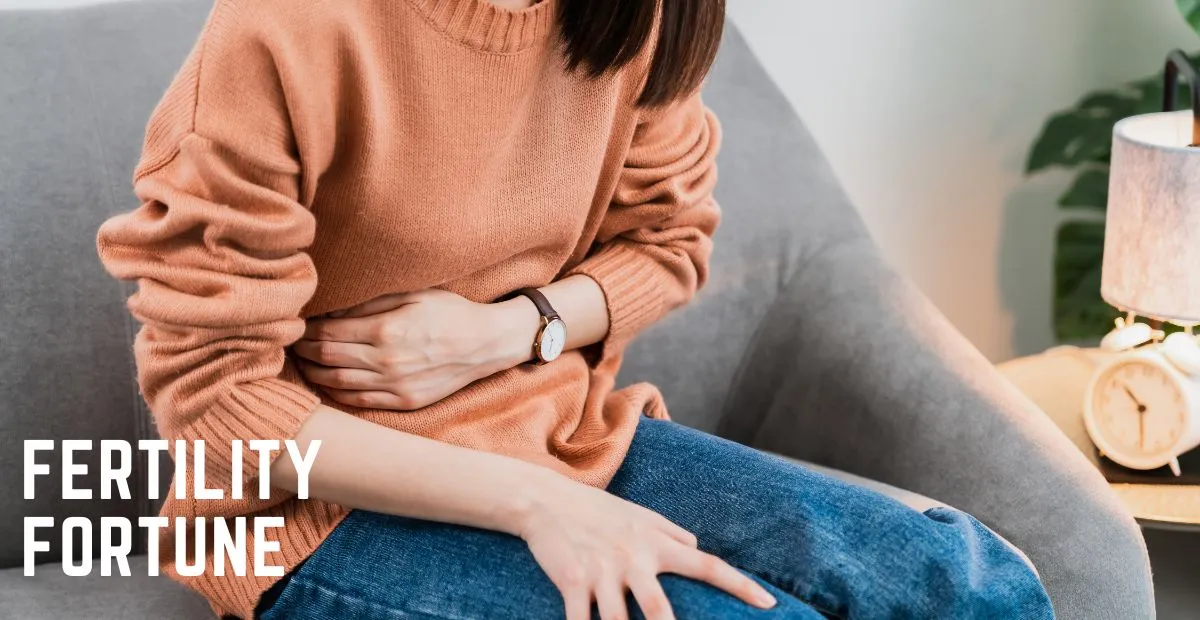
Can fibroids cause excessive hair growth? As a mother, you want what’s best for your health and wellness. This can include keeping an eye on signs of any potential medical issues before they become serious. One issue that you need to be aware of is the possibility of fibroids, as this might cause some symptoms that need attention. Specifically, one symptom could be excessive hair growth which may indicate underlying complications with fibroids. In this blog post, we will look at how fibroids can lead to overly-hairy body parts, what treatments are available should the condition arise and how careful monitoring on your part can help prevent progressive problems in the future.
What are fibroids?
Fibroids are non-cancerous lumps that can grow in or around a woman’s womb. They usually don’t cause any major problems. However, they can, depending on the severity of the condition. Symptoms may include abdominal bloating and pain, heavy periods, and difficulty urinating or having a bowel movement. Fibroids can be treated depending on the type and size, but some cases require surgery. Many women don’t know they have fibroids until other medical tests are done that highlight their presence, as there may not be any symptoms at all. It is important to discuss your individual case with your doctor to decide which course of action needs to be taken.
What are the causes of fibroids?
Fibroids are non-cancerous benign tumours. They are also called myomas or leiomyomas. Fibroids can come in different sizes, from small seedlings to large masses. Some fibroids can even grow to the size of a grapefruit. While it is not clear what exactly causes fibroids to form, there are several possible risk factors. These include
Hormonal imbalances
Fibroids tend to grow in response to estrogen. Therefore, anything that causes an imbalance in hormones (such as puberty, pregnancy, or menopause) can trigger their growth.
Family history
If you have a family member who has had fibroids, you may be more likely to develop them yourself. Being African-American: African-American women are two to three times more prone to develop fibroids than other women.
Obesity
Obesity has been linked with an increased risk of developing fibroids. While anyone can develop fibroids, they are most common in women between the ages of 30 and 50. In many cases, they do not cause any symptoms and do not require treatment. However, some women may experience heavy bleeding, pain, and pressure due to the size and location of their fibroids. If you are experiencing these symptoms, your doctor may recommend medication or surgery to remove the fibroid(s).
How are fibroids diagnosed and treated?
Fibroids can often be diagnosed with a physical examination in combination with other diagnostic procedures, such as ultrasounds, blood tests, and MRIs.
Ultrasound
Ultrasounds are generally the best way to identify fibroids, as they can provide detailed images of their location and size which is essential information for deciding on an appropriate treatment plan.
Saline hysterosonography
This is another method which is used for diagnosis purposes. hysterosonography uses non-radiation technology to detect pathologies of the uterus and endometrium. This procedure can easily identify submucosal polyps and fibroids.
Magnetic Resonance Imaging (MRI)
Although MRI is an expensive investigation as compared to other radiological tests, but it will provide doctors with more precise and accurate details like the exact size, location and a number of fibroids.
Hysteroscopy
Another method for inspecting the uterus is diagnostic hysteroscopy. The procedure can be carried out at a clinic. This test can readily detect submucosal fibroids and polyps.
Treatment options range from medical management methods, such as hormones or pain relief medication, all the way to more invasive interventions, such as surgical removal by myomectomy or hysterectomy. The choice usually depends on the number and size of the fibroids and the severity of any associated symptoms. Each patient needs to be assessed individually in order to choose the best treatment for them.
How are fibroids treated, and is surgery the only option?
Fibroids, also known as uterine leiomyomas, are non-cancerous benign tumours that grow in the uterus. Treatment for fibroids depends on patient symptoms and age; women of childbearing age tend to respond most favourably with conservative treatments such as medications, a procedure called ablation or intrauterine device (IUD) therapy. However, if the fibroid is large and symptomatic, surgery may be necessary. Recent advances in medical technology offer minimally invasive treatment options like ultrasound-guided radiofrequency ablation or hysteroscopic resection that can preserve fertility while treating the tumour effectively. Ultimately, when considering fibroid treatment options, it’s important to consult with a highly experienced gynaecologist to develop a plan tailored to your needs.
Can fibroids cause excessive hair growth?
Fibroids are benign growths that develop in the uterus. While they are mostly benign, they can cause a number of symptoms, including pelvic pain, pressure, abnormal menstrual bleeding and frequent urination, but can fibroids cause excessive hair growth? Yes, it does. Fibroids can cause excessive hair growth. While the exact mechanism of why fibroids cause excessive hair growth is not clear, it is believed that the hormones produced by fibroids can stimulate hair growth. Excessive hair growth, or hypertrichosis, can be a symptom of several medical conditions, including fibroids. Fibroids can cause an increase in androgen levels, which can lead to hypertrichosis. Androgens are hormones that play a role in male characteristics, like excessive hair growth on the face and body. In women, an increase in androgen levels can cause excess hair growth on the face, chest, and back. Fibroids can also cause other changes in hormone levels, which may contribute to excessive hair growth. Hypertrichosis is usually not a serious condition, but it can be not very pleasant for some people. If you’re concerned about excessive hair growth, talk to your doctor. They can determine if fibroids are the cause and recommend treatment options.
What are some natural remedies for reducing excessive hair growth caused by fibroids?
Fibroids are benign tumours that can cause excessive hair growth in some women. Although many conventional treatments exist for reducing symptoms associated with fibroids, for those looking for an all-natural approach, there are various remedies available. Some natural remedies that may help reduce excessive hair growth caused by fibroids include
- Eating a balanced diet packed with essential nutritional value.
- Exercising regularly.
- Drinking plenty of water.
- Taking herbal supplements like black cohosh and saw palmetto
- Many people find yoga to be extremely effective in reducing stress and controlling hormones which can impact or contribute to excessive hair growth.
Overall, if you think your fibroids may be causing your excessive hair growth, take the time to look into natural remedies – they could make a big difference!
How can you prevent excessive hair growth caused by fibroids?
Fibroids are benign tumours that can cause excessive hair growth. While there is no one-size-fits-all solution for preventing this, there are certain lifestyle changes you can make to reduce your risk.
- Eating fruits and vegetables.
- Getting regular exercise.
- Avoiding smoking can all help in combating the hirsutism caused by fibroids.
- Supplements, such as those with pumpkin seed oil or saw palmetto extract, have been known to curb hair growth in the affected areas.
It’s important to seek out natural remedies instead of relying solely on prescription medications, as they are often less harsh on the body and more effective at achieving desired results. With a combination of lifestyle changes and natural remedies, anyone suffering from fibroid-related
hirsutism should be able to find relief with time and patience.
YOU MAY ALSO LIKE:
Can you get pregnant with a prolapsed uterus?
Can polyps in uterus cause pain?
How to strengthen uterus for pregnancy?
Why amniocentesis is important?

